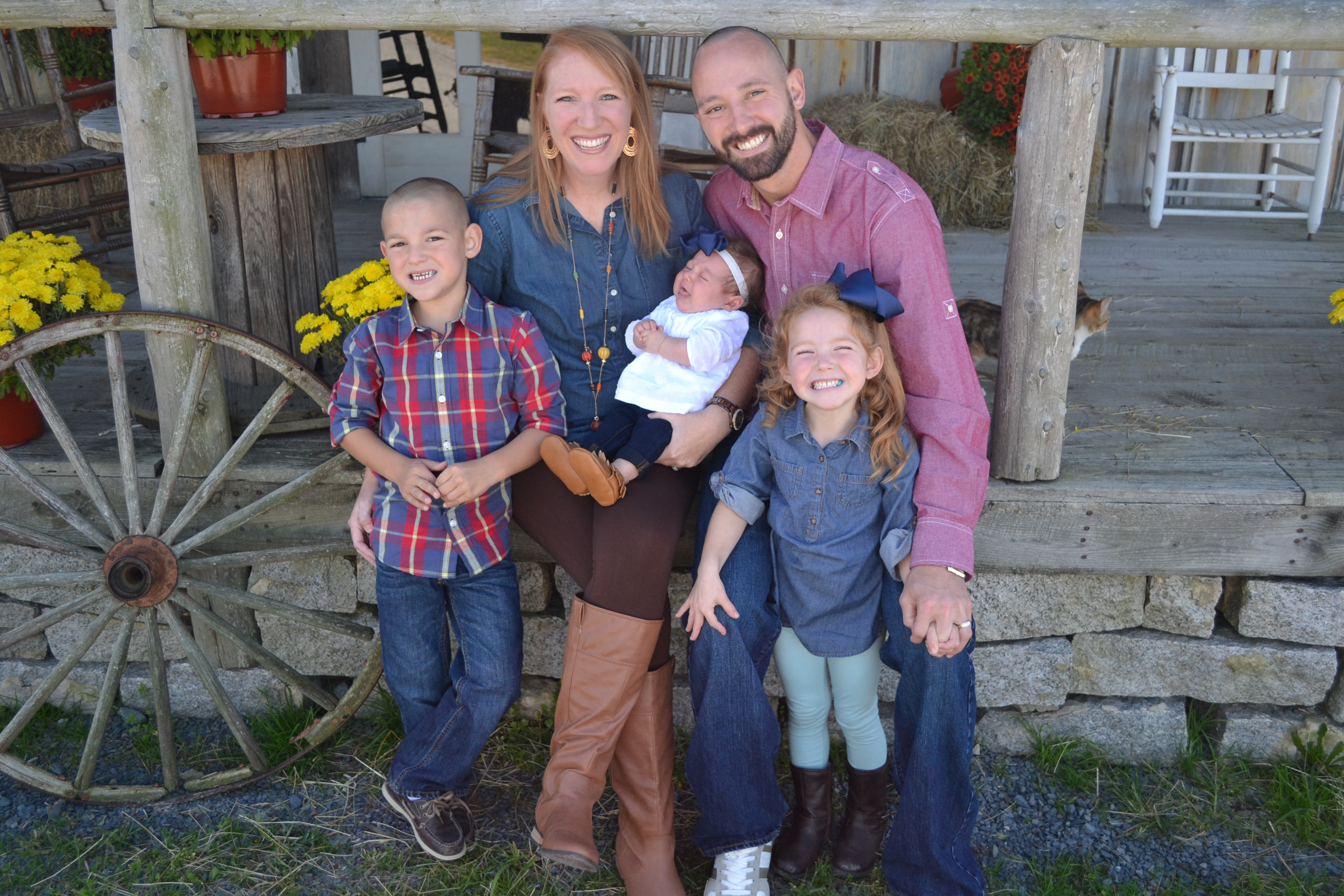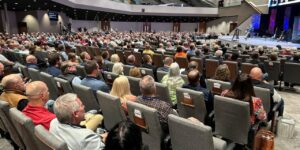
[SLIDESHOW=42204,42205,42206,42207]LANCASTER, S.C. (BP) — Imagine quitting your job, putting your roomy home up for sale, paring down your possessions by way of a yard sale, saying goodbye to family and friends, and moving your family nearly two hours away to set up housekeeping in a singlewide in the middle of a crime-plagued trailer park.
Grant and Amber Hinson can’t imagine doing anything else.
In May 2013, after praying about the move they felt God was preparing them for, Grant and Amber and their two children — a toddler and an infant — left behind the security of steady jobs and a middle-class lifestyle in order to immerse themselves as missionaries in a neighborhood law enforcement officials had tagged as a “hot spot” for criminal and drug activity.
Grant was a church youth pastor, and Amber a hospital nurse, when they walked away from their jobs in Rockwell, N.C., to move to Countryside mobile home park, a cluster of about 185 trailers housing more than 700 people in Lancaster, S.C.
Three local churches — one white, one black and one Hispanic — had committed themselves to establishing a Christian foothold, a mission outpost, in the park, and Grant and Amber accepted the challenge to live and minister among the “unwanted” residents of Countryside.
Grant said he and Amber have known what it feels like to be unwanted, which includes “anything from being the last picked on the playground to not being grouped with the cool kids.”
“There are always those who feel they are the person nobody wants,” said Grant, noting God had given his family an opportunity to reach out to those people.
The Hinsons and their children — Asher, 6; Evan Grace, 4; and, now, 5-month-old Adah Ruth — invest their time in getting to know their neighbors and establishing human connections with them. “Our purpose is to connect our neighbors to Christ and show them that we all are equal and have a purpose in life,” Amber said.
“We spend a lot of time in neighbors’ homes and yards, and many have spent time at our house,” she said. “People don’t care about your Jesus until they know you care about them.”
Amber takes women to the grocery store and to doctor appointments, and she helps Spanish-speaking moms communicate with their kids’ schoolteachers. Grant meets with men in the neighborhood almost daily, where he counsels and prays with them. He also plays basketball with them on Friday evenings. The Hinsons schedule events like fall festivals and yard sales in an effort to bring neighbors together.
Grant and Amber hold ministry activities in a rented trailer called The Connection, where, with the help of area church volunteers, they have “Homework Helpers” for school kids three days a week, English-as-a-second-language classes, and a men’s prayer meeting.
The Hinsons also connect the residents of Countryside with local church congregations. In the summers, area churches and visiting mission groups from out of state work with Grant and Amber to hold backyard Bible clubs, sports camps and Vacation Bible Schools. Each week, a local church sends over a bus to pick up kids for an Awana club meeting.
The Hinsons’ work is supported by several churches, by Moriah Baptist Association and by a construction company. Grant and Amber also receive some funding from the South Carolina Baptist Convention.
Daryl Price, SCBC church planting director, said the Hinsons “exemplify sold-out, living-for-Jesus missionary behavior.” Price said the couple is “doing what we are training our churches to do: cross cultures and barriers and take the Gospel to everyone.”
Lee Clamp, evangelism director for the state convention, echoed Price’s statement. “Grant and Amber are living out what we would hope all believers would do — live life as a missionary where they live, work and play,” he said. “They moved into a neighborhood that was under-reached and full of need and began to take responsibility for those around them.”
Bryant Fersner, director of missions for Moriah Baptist Association, said the Hinsons’ work represents a “biblical model of discipleship, evangelism and incarnational missions.” He said Grant and Amber are discipling a married couple and an individual — residents of Countryside — to also be “incarnational missionaries.” The vision is to multiply the model in other communities and neighborhoods, Fersner said.
Grant’s message to the “unwanted,” drawn from Acts 17:26-27, is that God “is never far from each of us.” It doesn’t matter if the people aren’t white, or if they’re not middle-class, or if they don’t know who their parents are, he said, because they’re “just as valuable to God as we are.”
“There’s nothing they’ve done — nothing they can do — to make God run away screaming,” Grant said. His message to his neighbors: “God has a perfect plan for you to seek and find Him.”
When asked how they knew the time was right to quit their jobs — even before they knew what God’s plan was for their future — Grant and Amber said they, in fact, did not know. But both, in separate interviews, uttered the same phrase: “Commitment comes before clarity.”
“We had to commit to God before we had any clarity,” Amber said. “Now, looking back, we’ve seen His protection on our family. We know it’s His will for us to be here. Blessings come with clarity, and faith deepens.”
A year after their move to Countryside, Amber wrote in her blog: “We have seen death and life. We have seen tears and joy. We have seen abuse and love. We have seen handcuffs and chains break. We have seen addictions and re-dedications. We have seen depression and forgiveness. We have seen our faith grow. We have seen people love.
“We have leaned into our Savior’s embrace and felt Him guiding and teaching,” Amber said. “He has never left us.”
Today, almost three years after abandoning their safe, predictable lives to move to Countryside, Grant and Amber say it was the best decision they’ve ever made, the most transformative experience of their lives.
To those who likewise feel led to follow God to an unknown place, Amber has a word of advice: “Take that leap of faith. It’s so worth it.”















